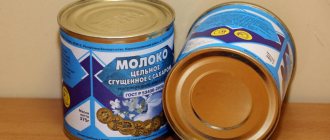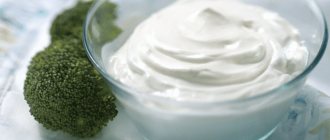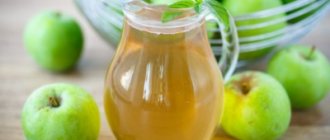During breastfeeding, a mother has to carefully select her diet, and some foods must be completely excluded. But sometimes you want to treat yourself to coffee or hot chocolate. It is doubly difficult to deny this pleasure when there is an addiction. Let's figure out whether cocoa is ok while breastfeeding.
Cocoa is another controversial drink during breastfeeding, but it is allowed for consumption subject to certain rules.
The benefits of cocoa during breastfeeding
The drink is made from cocoa powder, which is produced from cocoa beans. The fruits contain about 300 substances. The most significant benefits are:
- anandamide is a substance that regulates processes in the nervous system;
- arginine is a partially replaceable amino acid. Acts on blood vessels, lowering blood pressure, relieving spasms, improving blood circulation in the brain and blood flow to the genitals;
- dopamine is a neurotransmitter that affects vascular smooth muscle, increases heart rate, raises blood pressure, inhibits intestinal motility and gastric emptying, increases blood flow in the kidneys;
- histamine is a factor in pathological processes in the body and is involved in the mechanism of development of allergic reactions. Increases vascular permeability, causes tissue swelling, itching, redness;
- tryptophan - is part of all animal proteins, is used for depressive conditions, sleep disorders, and is used in the treatment of alcohol addiction and withdrawal syndrome. But during lactation and pregnancy, tryptophan is contraindicated;
- polyphenol is a natural antioxidant.
Beans contain fat, proteins, polysaccharides, fiber, minerals, organic acids, and caffeine. The fruit contains the active substance theobromine, which is similar in action to caffeine, mainly affecting the central nervous system, heart and blood vessels.
Cocoa also contains vitamins A, B, C, E, and trace elements - manganese, copper, magnesium, iron, zinc, potassium, calcium, sodium.
Useful and important substances have an effect on increasing immunity, the functioning of the heart and blood vessels, the formation of bones and connective tissue, hematopoiesis, and prevent the development of anemia. Sodium and potassium ions are the main components of the body's electrolyte balance.
Is it possible to have chocolate?
Chocolate is on a par with cocoa, and many young mothers cannot deny themselves the pleasure of enjoying this sweet dessert. It's no secret that chocolate is made from cocoa beans.
It contains antioxidants, as well as substances that activate the process of releasing endorphins (the hormone of happiness). It would seem that such a useful product cannot be harmful to a woman who is breastfeeding. In fact, official medicine does not recommend that young mothers eat chocolate. As an exception, you can allow yourself only a small piece of this amazing delicacy.
What harm can cocoa cause to nursing mothers and babies?
Cocoa is usually prepared with the addition of milk. And it is known to cause allergies and intolerance to milk sugar in a child. Therefore, you should not drink the drink until 3 months.
The composition includes caffeine, which has a stimulating effect on the central nervous system, increasing physical and mental activity. It increases heart rate, causes arrhythmia, constricts blood vessels, and raises blood pressure. It will be useful to use cocoa for people with low blood pressure to normalize the tone of the vascular walls.
Cocoa powder does not contain as much caffeine as, for example, coffee or tea. But even this dose will be enough to have a negative effect on the baby.
Theobromine, in addition to its caffeine-like effect, can leach calcium from bones. It adversely affects the kidneys, where salts are deposited. The pathological effect will occur with regular consumption of the drink in large volumes.
Among other things, cocoa beans often harbor exotic parasites, and pesticides are used to kill them. It is difficult to clean the fruits from parasites, so small producers grind cocoa beans along with them. High concentrations of harmful chemicals and poor processing make the final product even more dangerous. In this regard, you need to carefully choose a cocoa manufacturer and not skimp on your health.
Not everyone considers cocoa a harmful drink for a young mother
Today, in the vastness of the RuNet, large-scale discussions are flaring up about whether a nursing mother can drink cocoa. Representatives of the fairer sex present to the public a wide variety of recipes on how to enhance lactation through drinks and food. It is noteworthy that some ladies believe that this can be achieved with cocoa and milk. At the same time, it should be emphasized that some new mothers eat cocoa without any harm to the baby’s health.
Here everything depends on the reaction of the latter: if after cocoa he has no allergies, his appetite does not disappear, his sleep is calm, then a small dose of the drink is quite acceptable.
In this regard, a very relevant question is whether a nursing mother can have cocoa in the first month after childbirth. A categorical negative answer will follow here. Only after several months have passed since the birth of the child can you experiment with cocoa.
When and in what quantities can you drink cocoa while breastfeeding?
After stable lactation has been established and the child has adapted to new living conditions, cocoa is drunk no more than once a week.

Since cocoa is a common allergen and contains caffeine, which affects the nervous system of the mother and baby, it should not be consumed often.
In this case, several conditions must be observed that will help reduce the risk of adverse reactions:
- The drink is drunk when the child is completely healthy, calm, nothing bothers him, and his appetite and sleep are not disturbed.
- You should drink cocoa in the morning to monitor your baby and notice the first signs of allergies.
- A cup of cocoa can be poured immediately after feeding, then the concentration of unfavorable substances will decrease the next time the baby is applied to the breast.
- There should be no intolerance or allergy to milk and cocoa powder in the mother and relatives of the child.
- For cooking, you need to take low-fat milk and dilute it half with water.
- There is no need to add granulated sugar.
Recommendations and tips
If you still cannot deny yourself a cup of cocoa under any circumstances, then when preparing the drink, dilute the powder with water or milk in a ratio of 2:1 or 3:1. You should also limit added sugar.
Make sure that you consume the drink in the first half of the day in order to have additional time to observe the child’s reaction to the innovation. To minimize the possibility of allergies in your baby, it is recommended to drink cocoa immediately after you finish feeding. If a child suddenly develops itching, rashes or redness on the skin, then you should immediately stop experimenting with cocoa.
When your little one feels great, you can allow yourself one or two cups of drink a week.
Many people are haunted by the question of whether a nursing mother can have Nesquik cocoa? Doctors do not give strict contraindications in this regard, but they warn that excessive consumption of Nesquik is fraught with health problems for the child, since the drink under this brand contains a huge amount of sugar, which, of course, is a negative factor.
Is it possible for a nursing mother to take Nesquik?
In addition to the main component, the finished drink contains sugar, emulsifier, maltodextrin, vitamins, salt, minerals, flavoring, and cinnamon. Nobody knows how chemical additives will affect a child. They will definitely not bring benefits to either the mother or the child.
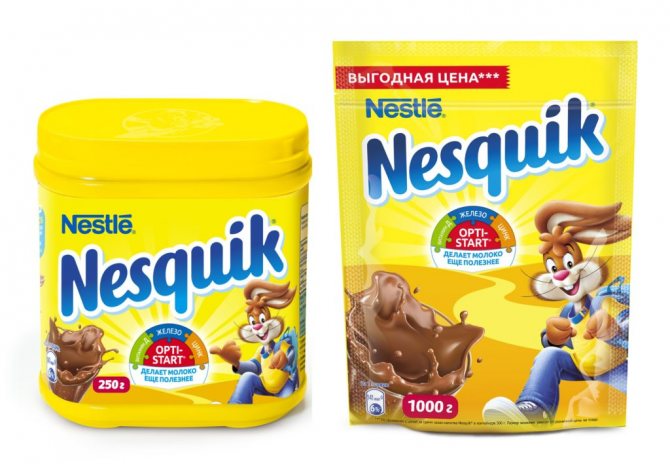
The composition of Nesquik is “rich” in vitamins and minerals, as well as sugar and other additives, so whether it will make milk healthier is a moot point...
If mom really wants a tasty aromatic drink, then nothing will happen when drinking one cup of Nesquik. But it is still healthier and safer to drink a drink made from powder without additives.
Is it possible to have cocoa with milk?
Again, some young mothers cannot overcome their addictions and, despite any prohibitions, drink the above drink with milk. Is it worth reproaching them for this? Can a nursing mother have cocoa with milk?
And here doctors show loyalty, but at the same time they emphasize that the product can be introduced into the diet only several months after birth. As noted, when making cocoa, you should use a low-fat cow's product.
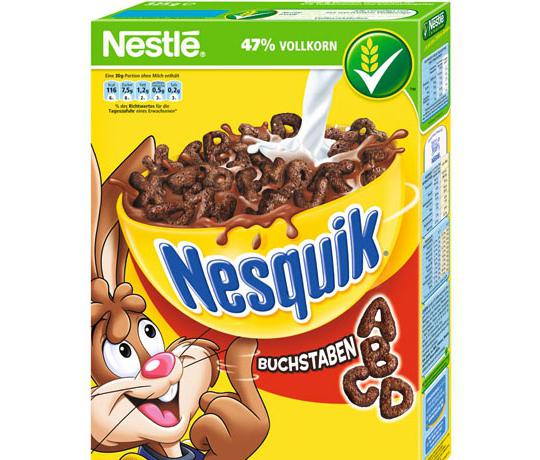
It is not recommended to enjoy the drink in the afternoon, otherwise you may not notice your baby’s reaction to cocoa in time. And, most importantly, remember a sense of proportion.
Non-standard use of cocoa
Cocoa powder is commonly used in cooking, making desserts, baking, and is added to sauces for meat and fish dishes. Cocoa and hot chocolate are prepared. But cocoa has found application not only in the kitchen:
- And also in cosmetology. Cocoa is used to make face masks, lip moisturizers, and chocolate body wraps. Cocoa softens, moisturizes, nourishes the skin, smoothes out fine wrinkles, stimulates blood circulation, exfoliates old skin cells, and lightens age spots. This is a great spa treatment both in the salon and at home.
- Shavings of the grated fruit are added to porridge, salads, and drinks. It improves taste and adds piquancy to dishes.
- It is used as a cough suppressant for colds. To do this, take half a teaspoon of cocoa butter in a glass of warm milk, stir thoroughly and drink slowly.
- Cocoa treats skin diseases and eczema. On its basis, mash and ointments are prepared: cocoa butter is mixed in certain proportions with essential oils of tea tree, calendula, lavender, chamomile, and cedar.
- Cocoa is an effective means for losing weight. It stimulates metabolic processes, reduces appetite, and normalizes the activity of the endocrine system.
- This is a powerful aphrodisiac. Even the ancient Aztecs noticed the benefits of cocoa beans. And Emperor Montezuma drank many cups of cocoa before going to the harem.
- Good to drink in cold weather. Cocoa stimulates the production of immunoglobulins, increasing immunity and protective properties of the body.
Let's summarize whether it is possible to drink cocoa while breastfeeding. It contains many useful substances that have a positive effect on the body, but it is also a strong allergen and contains caffeine and theobromine, which have a stimulating effect. However, following the recommendations for consumption, a nursing mother can enjoy a tasty and aromatic drink once a week.
What Dr. Komarovsky says about coffee for nursing
The opinion of the authoritative pediatrician Komarovsky on any issue regarding children is of particular importance for many mothers. He also has his own point of view regarding whether nursing mothers should drink coffee, how much and when to give it up.
Let us note the doctor’s loyalty to everything related to the care and upbringing of the child. Komarovsky is sure that for full growth and development, the baby needs to be allowed to explore the world, and the mother needs to enjoy the process every day, every minute.
You will be wondering: Is it possible to drink coffee at night and is it true that you won’t fall asleep later?
When asked by nursing mothers whether coffee is possible while breastfeeding and whether it is worth denying yourself such a little joy, the pediatrician answers simply: if the drink does not affect the baby’s behavior and health, the mother can afford several cups of really good coffee a day.

If, after consuming caffeine, your baby experiences the problems described below, you will have to give up the habit of drinking coffee for a while. A baby under the influence of caffeine may experience:
- increased anxiety and agitation;
- sleep problems;
- moodiness;
- skin rashes;
- disruptions in intestinal function.
Knowing the time during which coffee is excreted from breast milk, you can check whether caffeine is really the cause of allergic reactions and excitability in the child.
It is possible that negative reactions in the body were caused by an incorrect dosage of drugs whose structure is close to the structure of caffeine. An example of such drugs is theophylline or aminophylline. Medicines are prescribed to eliminate attacks of respiratory arrest in infants.
Additionally, Komarovsky reminds every nursing mother that caffeine in large quantities reduces the level of iron in milk, which leads to the development of anemia in the baby. Even if you don’t deny yourself the pleasure of enjoying a flavored drink, you need to do this with extreme caution, not forgetting about the baby’s health.

The doctor recommends drinking no more than two cups of good natural coffee a day during lactation, preferably with milk. In between natural ones, you can afford decaffeinated coffee while breastfeeding - barley-based or natural substitutes.
Possible harm
Despite all the positive qualities of cocoa, experts recommend treating this drink with caution during pregnancy. The product is considered a strong allergen, so you should not abuse it, even if you have not previously observed any unwanted reactions after drinking the drink. During pregnancy, the body becomes sensitive to potential allergens.
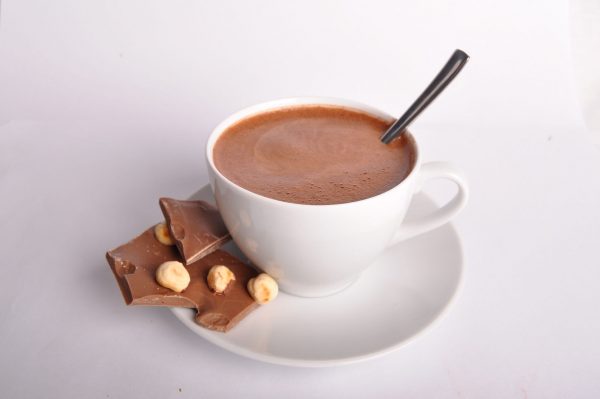
Cocoa is a strong allergen, but the concentration of its components in the drink is lower than in chocolate
The caffeine present in the composition not only has a stimulating effect on the nervous system, but also stimulates uterine contractions, which is undesirable during pregnancy. The same component can increase blood pressure, so it is contraindicated for hypertension. Oxalic acid present in the composition can leach calcium from bones and teeth if the drink is consumed too often or excessively. Cocoa with the addition of full-fat milk, cream, and large amounts of sugar is a high-calorie drink and can cause excessive weight gain if consumed frequently.
The following conditions are contraindications to taking cocoa during pregnancy:
- tendency to allergies;
- individual intolerance;
- kidney diseases;
- hypertension.





